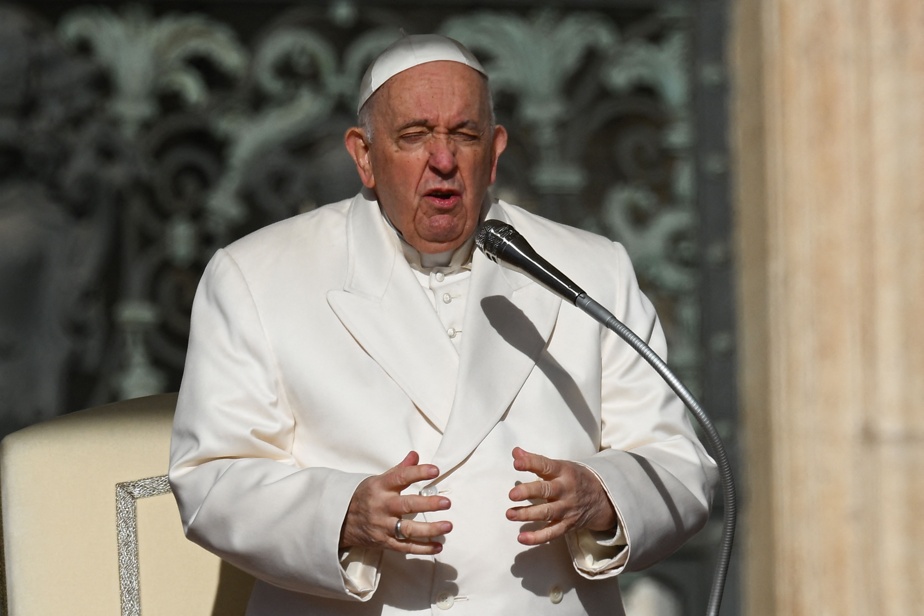(Vatican City) Pope Francis, 86, was hospitalized Wednesday for “a few days” in Rome to be treated for a respiratory infection, a new alert for the head of the Catholic Church who suffers from problems recurring health problems.
While the Holy See announced Francis’ hospitalization at midday citing “scheduled examinations”, the Vatican spokesman said in the evening that he was suffering from a “respiratory infection”.
“In recent days, Pope Francis has had difficulty breathing and this afternoon he was admitted to the A. Gemelli Polyclinic for medical checks,” said Matteo Bruni.
These examinations “revealed a respiratory infection” unrelated to COVID-19 and the pope will have to undergo treatment in the hospital for “a few days”, he stressed.
The Vatican did not say whether the Pope would be able to preside over Palm Sunday Mass at the Vatican or the celebrations planned for Holy Week and Easter.
In the morning, the Argentine pope, who in mid-March crossed the 10th anniversary of his pontificate, had participated as every Wednesday in the weekly general audience in Saint Peter’s Square, during which he appeared smiling, greeting the followers of his “papamobile”.
François, who has been in a wheelchair since May 2022 due to chronic knee pain, had already been hospitalized for 10 days at Gemelli Hospital in July 2021 for a major colon operation.
In an interview in January, he hinted that his problems with inflamed diverticula – hernias or pockets that form on the walls of the digestive tract – had returned.
Jorge Bergoglio explained that he had “after-effects” of the anesthesia suffered at the time of this intervention, which led him to rule out the possibility of knee surgery so far.
His knee pain, which notably forced him to cancel several appointments in 2022 and to postpone a trip to Africa, is at the heart of conjecture around a possible resignation.
He always left the door open to this scenario, like his predecessor Benedict XVI, who had renounced his charge, taking the whole world by surprise.
In July, Francis said he would “no longer be able to travel” at the same pace as before, going so far as to mention the possibility of “putting himself aside”.
But in February, he ruled that the renunciation of a pope should “not become a fad”, assuring that this hypothesis was “not on his agenda for the moment”.
Caregivers follow him constantly, both in the Vatican and during his travels abroad, but his recent health problems have led him to officially create a new function, that of “personal health assistant” for which he has appointed a infirm of Gemelli.
At the age of 21, Francis nearly died from pleurisy, according to his biographer Austen Ivereigh, and suffered the partial removal of one of his lungs in October 1957.
In a recently published book, he recalled this episode: “I understand how it can feel for people with coronavirus who have to struggle to breathe through artificial respirators”.
He also discussed another operation to remove cysts from his right lung in an interview with renowned Argentinian journalist and physician Nelson Castro, noting that he had “fully recovered” and had “never felt limited since then.” “.
When he was archbishop of Buenos Aires, he had been treated by a Chinese acupuncturist for his back pain, his biographer also wrote in May in the columns of The Tablet Catholic.
He also suffered from “gallstones” and in 2004 had a “temporary” heart problem due to a slight narrowing of an artery, according to his biographer.
In addition, her liver problems were able to be resolved thanks to a change in her diet.
Among the next appointments on his agenda, the pope must in particular preside over the Palm Sunday mass at the Vatican as well as several celebrations for Holy Week and Easter. He is also due to travel to Budapest at the end of April.

